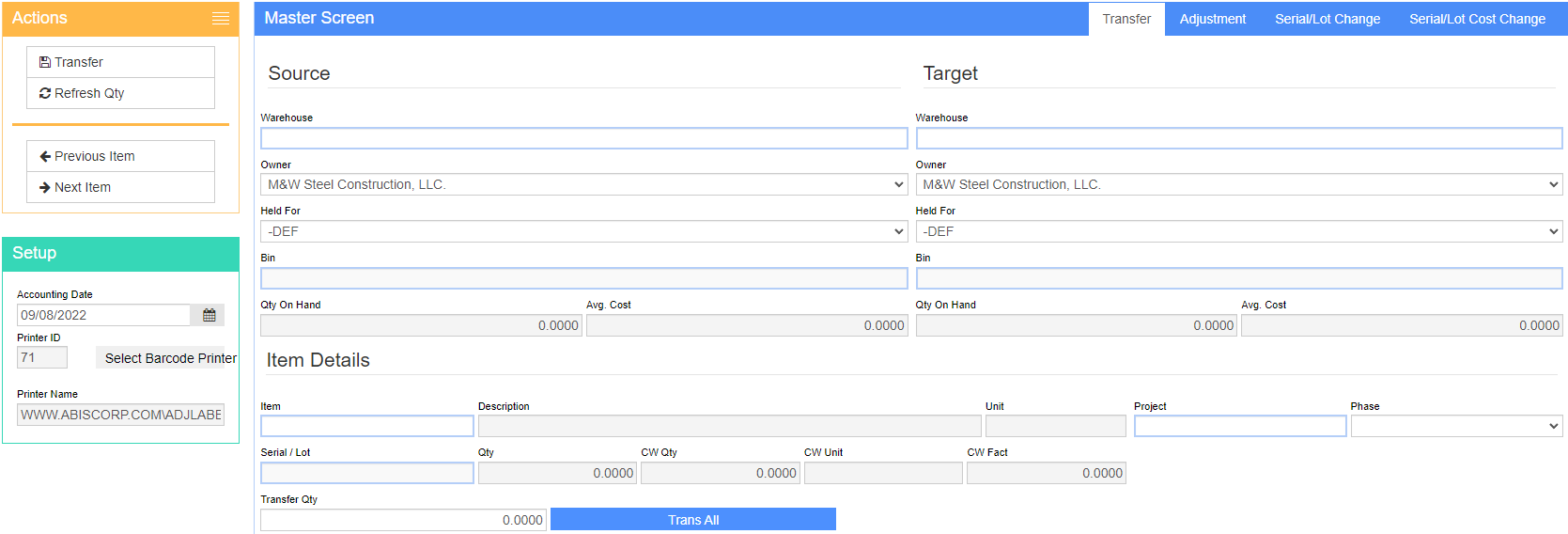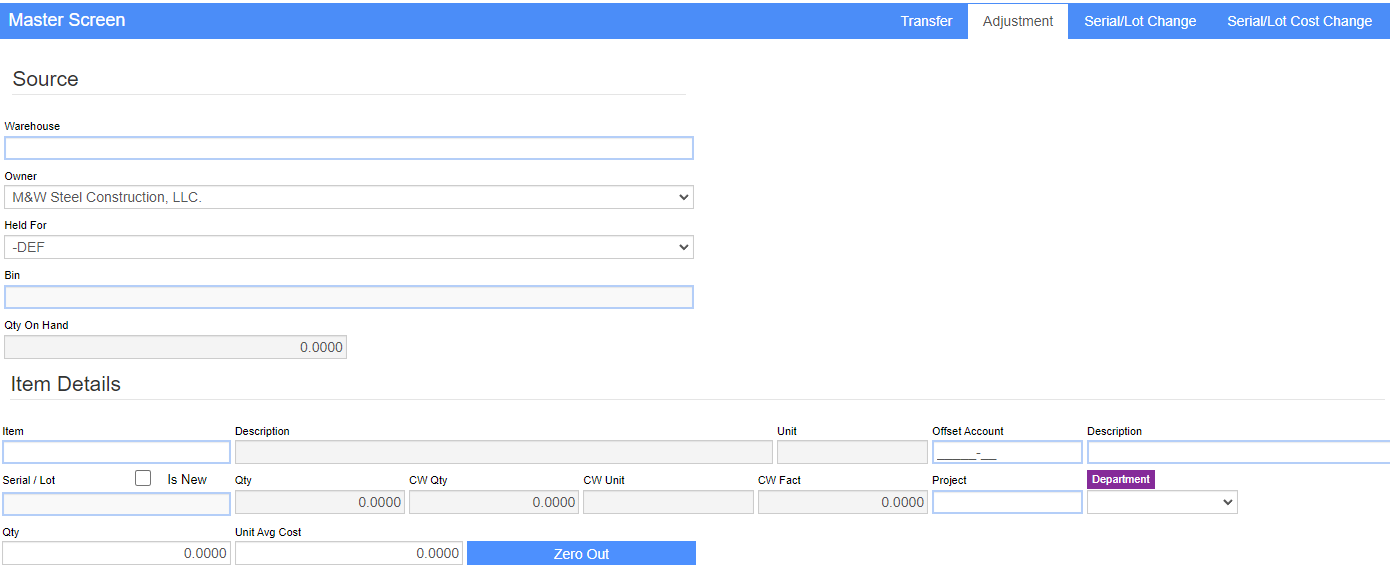Transfers and Adjustments
From Adjutant Wiki
General Description
Default Menu Location Transaction >> Item Control >> Transfers & Adjustments
Screen Name TRANSFERSANDADJUSTMENTS
Function The Transfer and Adjustment screens allow users to change incoming and on-hand inventory by:
- Location- Transfer inventory between warehouses
- Quantity- Adjust inventory to match physical counts
- Identification numbers- Correct lot or serial number to a previously entered stock item
- Cost- Change current stock and weight unit values
Transfer Tab
The Transfer tab is used to transfer stock inventory items from one warehouse to another.
Fields/Filters
Source Whse: The warehouse the items originated from.
Target Whse: The warehouse the items are going to.
Owner: The owner of the transferred items.
Held For: The organization the items are held for.
Item: The code of the item being transferred.
This field can also be searched by entering a semicolon and the P-Number (tracking number). For example, if the tracking number is P12345, enter ;P12345 in the Item field and the system will populate the Item, Serial/Lot, etc that corresponds to that p-number.
Desc: The description of the item being transferred.
Adjustment Qty: The quantity of the item being transferred.
Lot/Serial#: The lot # or serial # of the item being transferred. You may only transfer one lot or serial controlled item at a time.
Adjustment Tab
The Adjustment tab is used to manually adjust inventory levels in a warehouse. This tab is useful after doing physical inventory counts and when first configuring the system.
Fields/Filters
Source Whse: The warehouse the items are being adjusted in.
Owner: The inventory owner of the item.
Held For: The entity the item is held for.
Item: The code of the item being adjusted.
This field can also be searched by entering a semicolon and the P-Number (tracking number). For example, if the tracking number is P12345, enter ;P12345 in the Item field and the system will populate the Item, Serial/Lot, etc that corresponds to that p-number.
Desc: The description of the item being adjusted.
Qty: The quantity being adjusted. Use a negative sign when negatively adjusting inventory levels.
Qty on Hand: The current quantity on hand of the item and warehouse selected.
Unit Avg Cost: The average cost of the item selected in the warehouse selected.
Lot/Serial#: The lot # or serial # of the item being adjusted. Only one lot or serial controlled item may be adjusted at a time.
Department: The department responsible for the adjustment.
New: Check this box if the lot controlled or serialized item is new. This is only for positive adjustments.
Positive inventory adjustments will update the item's average cost.
Serial/Lot Change Tab
The Serial/Lot Change tab is used to change the lot or serial number of a previously received item.
Enter the Package Tracking #. This number can be found in the Item Master on the Lot# (or Serial# if serialized) tab under the PackID column. Each lot controlled/serialized item has its own tracking number.
Enter the new Lot/Serial# in the last field and click Change.
Serial/Lot Cost Change Tab
The Serial/Lot Cost Change screen allows users to change pricing information.
If you select Direct Cost Only, only the serial/lot cost change will be made. Average cost is not updated and no journal entry is created. Select Average/Tier Cost to update average cost, the SI Cost Tier, and make a journal entry for the change.
Fields/Filters
Item: Item code
Serial/Lot: Serial number or Lot
Stk Unit: How stocks are measured
Current Qty: Current quantity
CW Unit: Catch Weight Unit
CW Qty: Catch Weight Quantity
Value: Value of the merchandise
Value Per StkUnit: Value per stock unit
Value Per CWUnit: Value per catch weight unit
Offset Account: Allows designating and offset GL account to be used for the adjusting journal entry.




